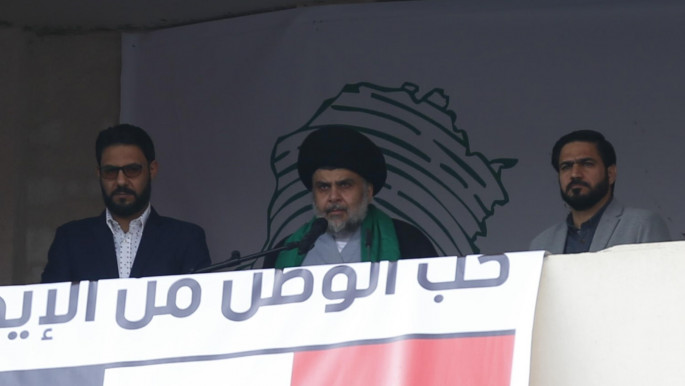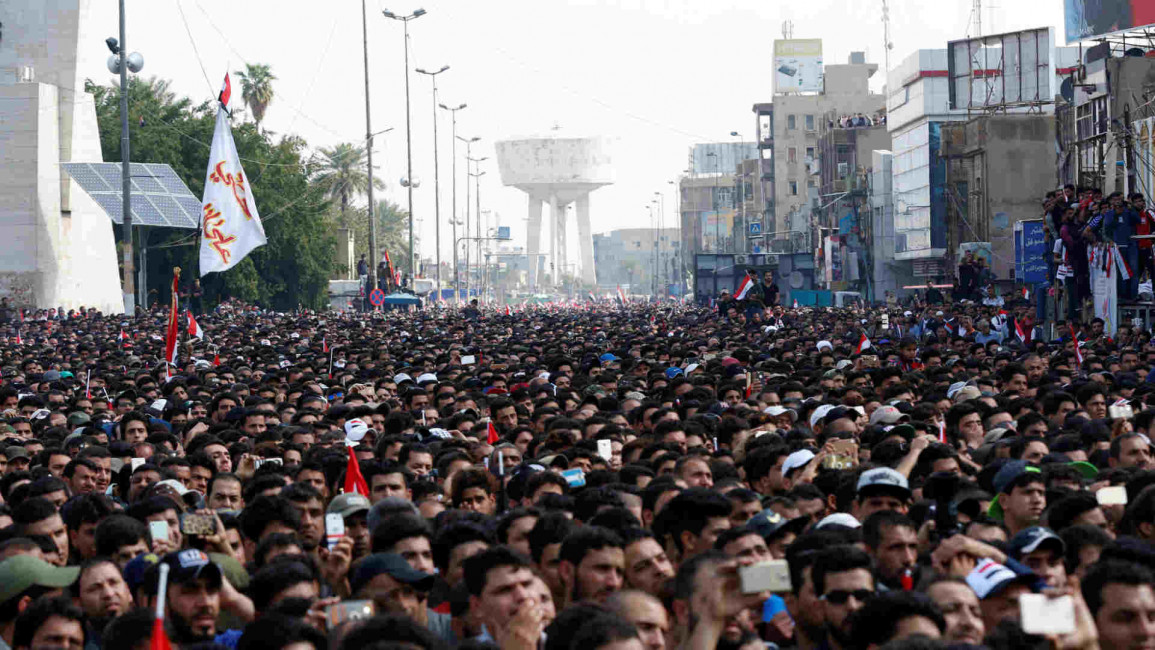Sadr mobilises supporters, threatens to boycott Iraqi elections
Speaking in front of thousands of anti-government protestors in downtown Baghdad on Friday Sadr called for the election committee set to oversee the upcoming vote to be overhauled and replaced.
The firebrand cleric's comments reflect ongoing political power struggles in Baghdad highlighting persistent divisions at a time when Iraqi forces are battling the Islamic State group for control of Mosul.
Sadr has repeatedly accused the Iraqi government and political establishment of corruption.
Friday's rally was organised a matter of days in advance with a statement put out by Sadr's office calling on Iraqi citizens to join him in order to "stand in the face of … corruption and tyranny."
Protests calling for reform spread in the summer of 2014 at a time when IS militants overran nearly a third of Iraq leading to a wave of largely civic and secular protests mobilizing millions across the country.
The movement consequently lost steam before Sadr, a wily political operator whose forces once fought against US military personnel stationed in the country after the toppling of Saddam Hussein, took over the mantle mobilizing thousands of his followers in a series of protests centred on Baghdad last year.
 |
| Sadr addresses supporters in Baghdad on Friday [Getty] |
On occasion during such protests clashes have occurred between Sadr's supporters and security forces. In one incident in February five people were killed following an outbreak of violence at a demonstration.
Sadr's supporters have also twice temporarily occupied Baghdad's highly fortified Green Zone, the base of the Iraqi government and a number of foreign embassies, even entering the parliament before withdrawing peacefully.
Although no opponents of current Prime Minister Haider al-Abadi have emerged powerful enough to unseat him, the country’s various political blocks remain capable of obstructing new legislation and unseating key ministers within the ruling government.
In a related development on Thursday The New Arab reported that cracks were emerging within the country's ruling National Alliance concerning the participation of members of the controversial Hashd al-Shaabi militia in the scheduled local elections.
Those advocating for the group's inclusion have pointed to its pivotal role in turning back advances from the Islamic State group, and its involvement in the Mosul offensive.
However, those opposed to the group – which has also been accused of human rights abuses – participating have said that as an official security institution members of the Hashd are not permitted to participate in elections, according to the country's electoral laws.
Advocates of this position are said to include Abadi and Sadr.
In January Abadi said that local elections would take place in all Iraqi provinces.
However, ongoing insecurity in many areas of Iraq in addition to the displacement of some 3 million Iraqis from their homes as a result of IS incursions in the country – may complicate proceedings.



